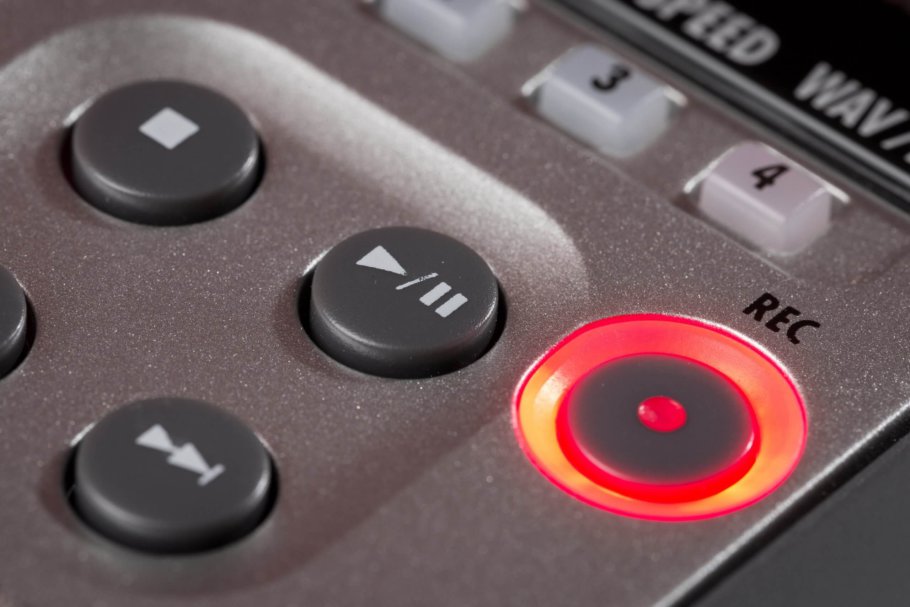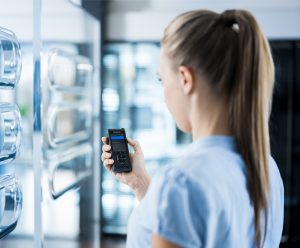Is a dictaphone the right product for you?
At Pacific Transcription, we often receive questions asking why someone should purchase a dictaphone. While dictaphones are more expensive than other voice recorders, they may be a beneficial investment for you.
What is a dictaphone anyway?
A dictaphone is a high-performing voice recorder designed for use by busy professionals. With a dictaphone, you are able to stop and restart a recording without creating a new file. You can also review, insert additional, and erase unnecessary recordings.
Features of a dictaphone:
- Files can be encrypted to increase the security of sensitive information.
- A large battery life, so they can record 10-30 hours of audio before running out of charge.
- Can be used for dictation or to record meetings, by setting the microphone to Conference Mode.
- Unidirectional microphone to reduce background noise.
- Dictaphones also create small file sizes which are small enough to send via email (specialised software is required for playback). Settings can be adjusted to create files that can be listened to on most playback software.
 Do I need a dictaphone?
Do I need a dictaphone?
Dictaphones are most often purchased by doctors, lawyers and other professionals who create voice recordings of letters. Generally, these are to be transcribed into text format by a secretary or sent to a transcription service provider. You can also use speech recognition software, such as Dragon Naturally Speaking, to automatically produce transcripts of your dictations. The editing feature of a dictaphone is useful if you are planning on getting your audio transcribed as it cuts out additional work for your typist.
Some other people who may be interested in purchasing a dictaphone include:
- Authors who want to create the next great novel but don’t have the time to sit down to write their masterpiece.
- Anyone who may wish to record meetings, interviews, lectures and conferences.
- Academics who want to quickly make notes when conducting research.
- People completing on-site reports including real estate agents and town planners.
Ask yourself a few questions before deciding if a dictaphone is the right product for you.
 How often will I use my dictaphone?
How often will I use my dictaphone?
Dictaphones are not cheap. So, if you only plan on using them on a rare occasion they may not be worth the investment. If you want the additional features of a dictaphone but are not willing to spend big bucks, cheaper alternatives are available.
Will I experience interruptions during recording sessions?
The editing feature of a dictaphone is very useful if you experience regular interruptions. They allow you to stop and start your recordings without creating new files. You will also be able to remove unnecessary parts and add additional notes to what you have already recorded. If you plan on recording on continuous audio, a note taker may be a better option.
What will I be doing with these recordings?
Most people who use dictaphones get the recordings transcribed into text. These devices are specifically designed for this purpose. Dictaphones also have speakers built into the device so you can playback directly from the device.
If you need more help deciding which device is best for you, contact the Products team at Pacific Transcription.
If you would like to learn more about our transcription services please feel free to call us on 1300 662 173, email us at enquiries@pacifictranscription.com.au or fill out our contact form. We are always happy to answer any questions and will be in touch with you shortly.
Updated 28/09/2022




 Do I need a dictaphone?
Do I need a dictaphone? How often will I use my dictaphone?
How often will I use my dictaphone?
I’d like to know whether today’s dictaphones have the ability to “slow down” the speed of the speech, in a recording.
[Not everyone types 65+ wpm.]
Also, with the addition of “modern technology”, does a modern dictaphone have the ability to “slow down” the speed of the “dictator’s” speech, WITHOUT lowering the pitch of the voice?
Obviously, the technology that allows singers to “correct” the pitch of their voices, etc., ought to be able to be applied to the “slowed-down” recording, to:
1) lift the pitch of the slowed-down voice, to the same pitch as was evident, in the “normal-speed” version of the voice;
2) separate words, without causing a “staccato” “feel”, when listening to the slowed-down recording;
3) “clean up” the enunciation of the individual words; and
4) use some kind of “slider” or “knob”, to slow-down (and speed-up) the recording.
But, can that technology be licensed?
I know an older person whose native language is OTHER THAN the language that is spoken, on TV, in the country where that person lives.
I would like to “record” TV shows –the news, game-shows, etc.,– and re-play the audio, for the shows, but at a slower pace, so the person can understand what’s being said.
[Obviously, a video version would be great, also.]
Hi Larry, thank you for your very interesting queries regarding dictaphones and recording, playback, slowing down the speech, etc., without distortion. Your best bet is to reach out to a sound recording engineer, or professional audiovisual company, to assist with this query. They are much better placed to answer a query such as this. All the best, Catherine.
So, is there a recording device that would take my recordings and then is capable of turning it into typed text? Would I also then be able to print my recorded text? If this exists, what is it called and what are the price ranges? Important: I want to cut the typist function out and go from recorded text to printed text to paper! Exist? Where would I buy something like this and prices? Thank you
Hi Tamara, what you are looking for is voice-to-text or speech-to-text software. Just Google those phrases and you’ll find what you’re looking for. All the best, Catherine.
I am about to construct a book on my short 83 years of life. I can speak better than I can type, therefore would like to speak into a dicta-phone and be able to have the recordings turned into book form digital or printed. Please advise your recommendations. Thank you Colin L Smith
Hi Colin,
Yes! A Dictaphone would be a great option for you. You would want to use it conjunction with a Speech Recognition program as the Dictaphone on its own won’t convert your voice into text. For your purpose I would recommend using one of our more affordable Dictaphones such as the Olympus DS-2600 or the Philips DPM-6000. I hope you find this helpful. Feel free to contact us if you require further assistance. Good luck, Sophie.